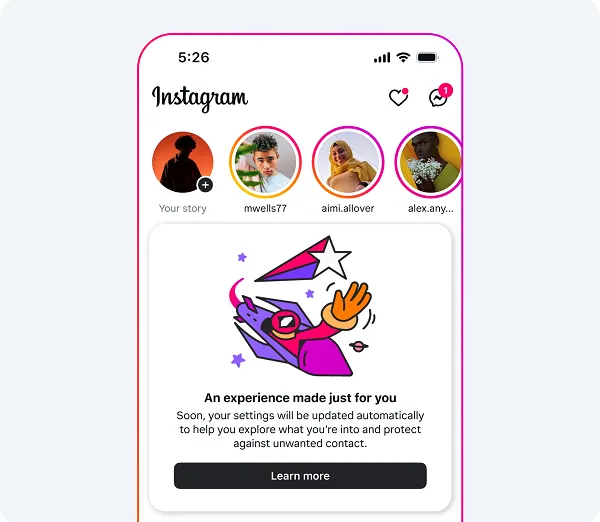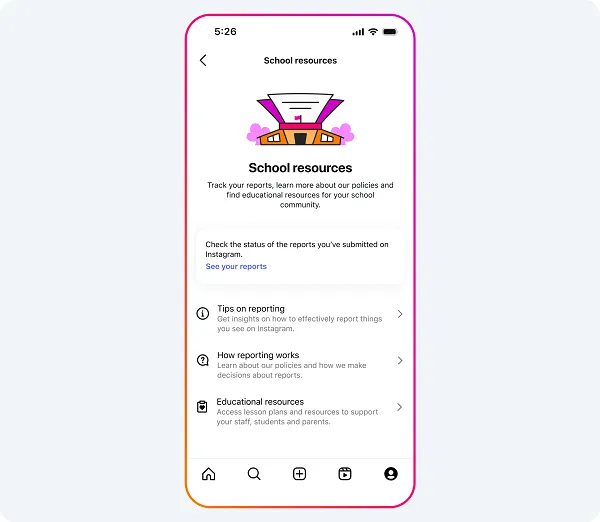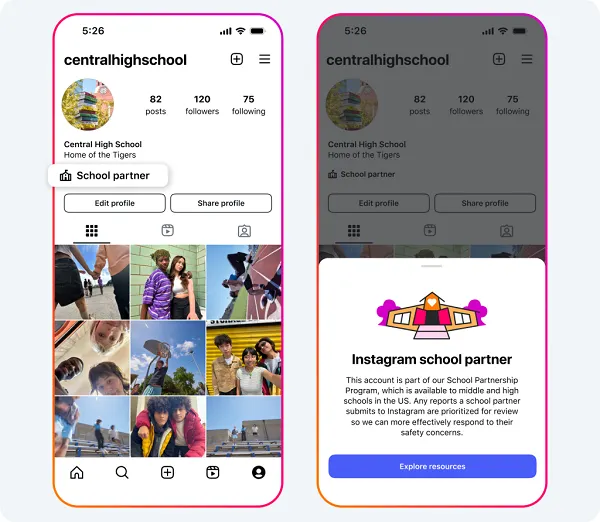Meta has confirmed that it’s increasing its protections on teen person accounts to all teenagers around the globe who’re utilizing Instagram and Fb, which is able to guarantee better protections for younger customers, in addition to further peace of thoughts for folks.
Meta’s teen accounts, which it first launched within the U.S. final 12 months, robotically restrict interactions with sure accounts when its techniques decide that the person is below 18. Teen profiles are additionally topic to further limitations on what they’ll view within the app, whereas they’re additionally proven alerts regarding time spent.
And now, all teenagers globally will get the identical, as one other step in the direction of enhancing protections inside Meta’s techniques.

As defined by Meta:
“A 12 months in the past, we launched Teen Accounts – a major step to assist hold teenagers protected throughout our apps. As of right this moment, we’ve positioned tons of of tens of millions of teenagers in Teen Accounts throughout Instagram, Fb, and Messenger. Teen Accounts are already rolled out globally on Instagram and are additional increasing to teenagers in all places around the globe on Fb and Messenger right this moment.”
So, as Meta notes, all teenagers utilizing Instagram, Fb and Messenger will now be topic to those new teen restrictions and protections.
Although a key concern inside that is that youngsters may also lie about their age, and subvert Meta’s teen restrictions.
However Meta’s additionally working to handle this, with advances in its age detection techniques, which may now make the most of a broad vary of things to find out person age, together with who follows you, who you comply with, what content material you work together with, and extra.
These evolving techniques, which additionally profit from Meta’s growing AI processes, have now made it a lot tougher for teenagers to cheat their method by means of, and together, these measures ought to guarantee better safety for all teenagers.
Which is essential, not solely to maintain younger individuals protected, but in addition from a regulatory standpoint, with many countries now seeking to enact legal guidelines to limit social media entry for younger customers. France, Greece and Denmark are pushing for brand new EU-wide rules, whereas Spain can be contemplating a 16-year-old entry restriction. Australia and New Zealand are additionally shifting to implement their very own legal guidelines, and Norway is within the strategy of growing its personal rules.
It appears inevitable that some degree of restriction goes to be imposed on teen social media use in lots of areas, and on this sense, Meta’s getting forward of the wave, by enhancing its detection and protections techniques. That might be sufficient to make sure it stays forward of the sport, and avoids main impacts from such.
Along with this, Meta’s additionally launching a brand new College Partnership Program for all U.S. center and excessive colleges, which goals to assist educators report security considerations on to Meta for faster assessment.

“Which means colleges can report Instagram content material or accounts which will violate our Neighborhood Requirements for prioritized assessment, which we purpose to finish inside 48 hours. We piloted this program over the previous 12 months and opened up a waitlist for colleges to hitch in April. This system has helped us rapidly reply to educators’ on-line security considerations, and we’ve heard optimistic suggestions from collaborating colleges.”
Collaborating colleges may even have the ability to show a banner on their Instagram profile to indicate dad and mom and college students that they’re an official Instagram associate on this component.

Colleges can signal as much as this system right here.
Lastly, Meta has additionally partnered with Childhelp to develop an on-line security curriculum particularly for center schoolers, with the purpose of reaching a million college students by subsequent 12 months.
Together, these initiatives will assist to maintain younger individuals protected, and enhance digital literacy schooling, which may go a great distance in limiting hurt in its apps.
Will that be sufficient to appease regulators, and hold them from implementing extra restrictions on Meta? In all probability not, however both method, Meta is shifting extra in step with neighborhood expectations, and needs to be higher positioned to deal with upcoming modifications to native legal guidelines on this entrance.



